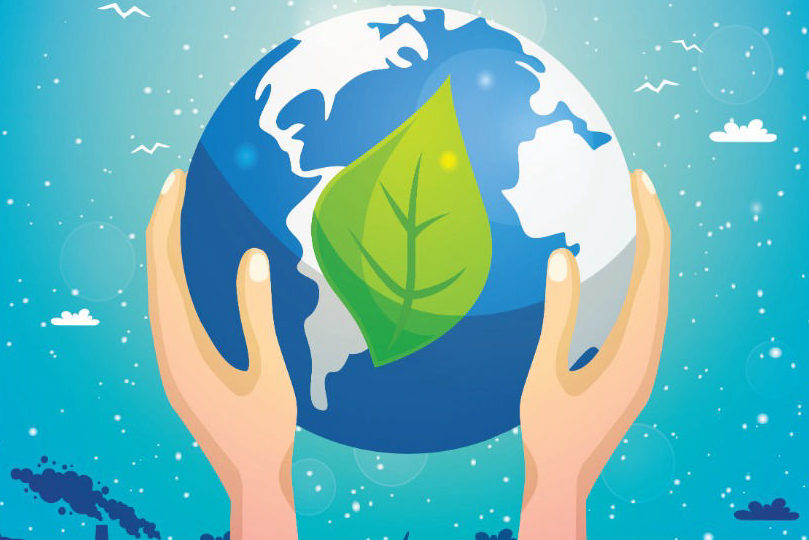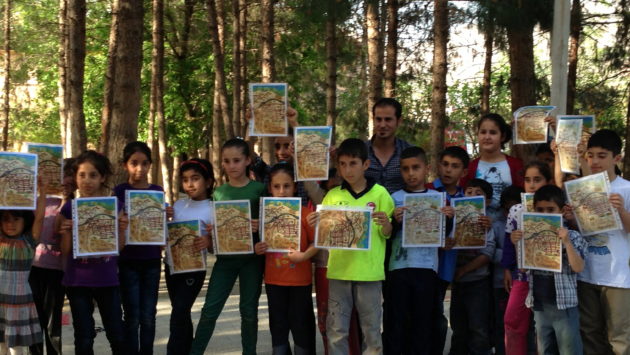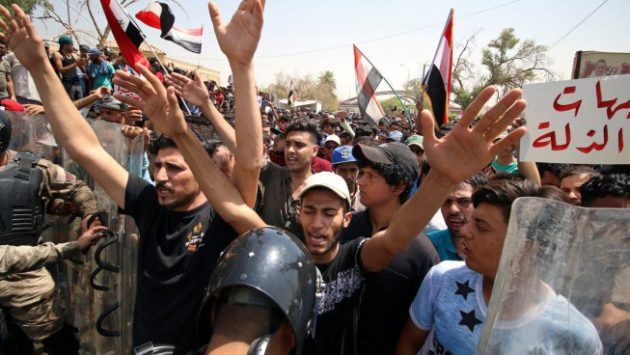On Earth Day, a new report tracks the reality and challenges of the environment in Iraq
On the occasion of World Earth Day, which occurred on April 22, the Information Center for Research and Development issued a report titled “On Earth Day.. Iraq and Environmental Challenges.” The report, which was prepared by a group of the center’s researchers, addressed the dimensions of the global environmental crises on Iraq, as part of the world affected by the dangerous environmental changes taking place. The report discusses the reality of the environment in Iraq in terms of biological diversity and the water crisis, reflecting on the environment and Iraqi soil, and worsening desertification. The report indicates that Iraq still suffers from problems that threaten its biological diversity, such as overfishing, over-hunting, and the absence of adequate laws and legislation to protect diversity.
The report also touches on the water crisis that Iraq will suffer in light of its dependence on about 70% of its water resources on neighboring countries that have sought to cut off the tributaries of the rivers and redirect them into their lands. This is in addition to a series of small and large dams being built in the region that cut the arteries of the Tigris and Euphrates. These developments are occurring in the absence of clear strategies and rational plans for the proper management of water, alongside the weakness of the Iraqi negotiator and his inability to negotiate with Iraq’s neighbors for fair shares of water.
The report adds that Iraq is suffering from the desertification disaster that is turning vast lands into deserts no longer suitable for agriculture. This also means population numbers are increasing over green areas, yet there is no deliberate plan to deal with this population expansion.
The report refers to the crisis of the Corona epidemic (Covid-19), which afflicts most of the countries of the world, as well as Iraq. The report reflects on the connections between this global disease and the inequitable exploitation by humans of natural resources, and the the goal of expanding financial profits at the expense of the global environment.
The report identifies a number of recommendations that researchers consider worthy of discussion and adoption by officials and decision-makers. These recommendations include:
- Develop methods of dealing with pollution associated with extracting and transporting oil by tankers in Iraqi ports.
- Review environmental policies, use environmentally-friendly energy, and develop economic policies that comply with environmental standards.
- Increase green areas by intensifying afforestation campaigns and many other means through which the environment can be improved.
- Change the behavior of the daily activities of the population, such as reducing the movement of cars and thus reducing the rate of greenhouse gas emissions to protect the environment.
- Suspend economic activities, especially industry, a few days each year, in an effort to improve air quality.
- To reduce desertification, the Ministry of Water Resources should implement and operate new irrigation and drainage projects and work to optimize groundwater exploitation, especially in areas where river water is not available. The Ministry of Agriculture should use modern technologies in agriculture and irrigation, in addition to working to develop and sustain natural plants and green areas, especially those surrounding cities.
- Establish banks to collect and conserve the genetic material of all plants and animals in order to conserve the genes of endangered species.
- Work to reduce all forms of human-caused pollution, limiting the use of pesticides and chemicals, and replacing them with organic materials.
- Avoid overfishing that threatens wildlife and especially endangered species.
- Reduce the cutting of trees, placing financial fines on violators, and encouraging tree planting.
- Reduce urban expansion that is destroying agricultural lands.
- Regulate the economic exploitation of nature to restore its environmental balance.
- Review and improve Iraqi legislation to contribute to preserving the environment, while imposing the rule of law on all those who try to harm it.
- Endeavor to resolve the water crisis and negotiate with neighboring countries on sharing water fairly with Iraq, and this requires the existence of a legislative, political and societal base that helps the Iraqi negotiator in his mission.
To read the full report, click HERE (Available in Arabic Only)
Information Center for Research and Development




